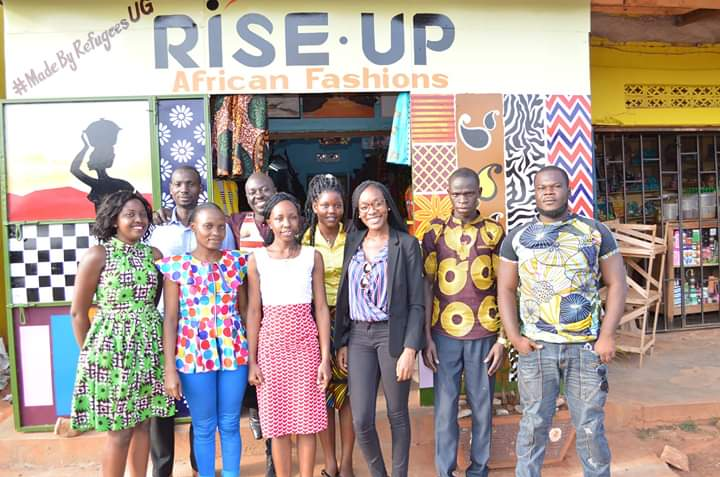On 15th July the world celebrates World Youth Skills day, this is particularly important for Africa where majority of the world’s young people live.
Uganda is among African countries with youngest populations, with over 78 percent of its population below the age of 30; almost eight million youth are aged 15-30. The country also happens to have one of the highest youth unemployment rates in Sub-Saharan Africa.
Thus, skilling of young people is a conversation that is very pertinent to the country that I live in and call home. However, in Uganda we are not having enough of these conversations.
Donnas Ojok is the Founder and CEO, RiseUP Hub, a fashion and design social enterprise specialising in the production of authentic African printed garments and training urban refugees.
In 2018, Uganda was host to 1.8 million refugees with the number expected to go up by the end of the year. In 2019 alone, United Nations High Commission for Refugees (UNHCR) projects that Uganda is expected to host 1.11 million refugees from South Sudan and 1.07 million in 2020. UNHCR says that 50,000 new refugees are expected to arrive in 2019; and 20,000 refugees in 2020.
RiseUp Hub was started in 2018 and it has so far provided complete tailoring packages to 50 youths in Kampala, 35 of whom urban refugees.
Question: Why did you start RiseUp Hub
Answer: I started RiseUP Hub to rightfully situate refugees as effective contributors towards the development of the fashion industry in Uganda by providing an employment and skills development opportunity.
Question: Why is it important to skill young people?
Answer: It’s important that youth are skilled for the simple reason that a skilled person has an expanded capacity to be an active economic and social actor. A skill increases someone’s chance to have access to a life-changing opportunity.
Question: Why Refugees?
Answer: At Riseup Hub we invest in refugees because we do not only believe in their talent, skills and potential but we are also deeply convinced that a skilled person is capable of being at the forefront of their own personal development and be of service to their families and communities rather than partial recipients of humanitarian assistance.
And that is what the Ugandan government has said is the most important for the refugees. Speaking in Davos earlier this year, President Yoweri Museveni said:
“Train the refugees in skills. There will be more conflict if they go into production but with skills, they can get employment in urban centers where their acceptance is not based on where they come from but on what skill they have to serve the community. This also helps when its’ time for them to return to their home countries because they have the skills to support themselves.”
Since this pronouncement by the State President, have there been any milestones to write home about? One of the country’s young entrepreneurs, Donnas:
“Just one month after completing our most recent training in a class of 30 urban refugees, 10 trainees have started small businesses and 3 are employed. This makes me proud.”
One of Uganda’s biggest undoings has been that whilst its population is young and very entrepreneurial, their attempts at opening new businesses do not last long enough. So I was keen to know if anything needs to be done, alongside skilling young people. This is the view from RiseUp
“Whilst I am a proponent of skills development, just skilling isn’t enough. Access to good employment opportunities requires a favorable environment for businesses to thrive. For instance, the likelihood that the 3 businesses started up by rising up trainees will fail is rather high and most often than not, it less attributed to reasons internal to the entrepreneur but rather to bigger micro and macroeconomic policy questions.
So young and skilled people in the informal sector should be provided with opportunities to get contracts usually reserved for big companies.”
To him, RiseUP isn’t only skilling but also changing the mindsets of young refugees to believe in themselves.



